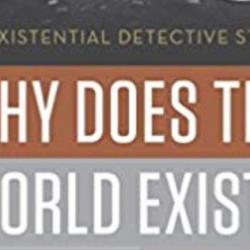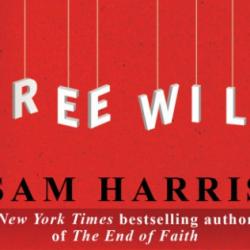Two heavy -weight philosophers of mind, Alvin Plantinga and Daniel Dennett, both with opposing views on the question: Science and Religion: Are They Compatible?
For those with an interest in the philosophy, faith, and science discussion – you will not be disappointed. These two are both philosophical giants and provide solid philosophical point, counterpoint. It’s brief, only about 77 pages, and though the content can get philosophically heavy at times, it is an easy and enjoyable read for those that enjoy these topics and the point, counterpoint format.
Plantinga, a Christian, takes the affirmative view, that science and religion are in fact compatible. Plantinga surveys some points on fine tuning, though admits this argument is rarely a basis for theism. Where he focuses his arguments are on rationality and warrant in a theistic view, and their absence in a naturalistic worldview. Plantinga states (page 9):
“As I argue in Warranted Christian Belief, if theistic belief is true, then very likely it has both rationality and warrant in the basic way, that is, not on the basic of propositional evidence. If theistic belief is true, then very likely there is a cognitive structure something like John Calvin’s sensus divinitatis, an original source of warranted theistic belief. In this way belief in God, like belief in other minds, has its own source of rationality and warrant, and doesn’t depend on argument from other sources of estimable qualities.”
He affirms the reliability of reason in a theistic worldview and interestingly posits evolution, if true, would not threaten the faculty of reason, if it was divinely guided. His point here is not to argue for theistic evolution, rather, (and here is where it gets interesting) that naturalism and evolution are incompatible. The conflict, says Plantinga (page 17):
“… Is between science and naturalism, not science and theistic religion. What I’ll argue is that naturalism is incompatible with evolution, in the sense that one can’t rationally accept them both.”
Dennett, a naturalist, takes the opposing view, that science and religion are completely incompatible. Rather than theism, he cunningly posits “Supermanism”, where Superman seeding life on this planet is just as preposterous as theism and shifts the burden of proof to Plantinga. He also attacks fine tuning, intelligent design, and “irreducible complexity” as a mere “God of gaps” argument and that we need not conjure up the supernatural, rather just continue exploration of the natural world. The gaps exist, in Dennett’s view (page 33):
“… For the trivial reason that it will take biologists centuries to investigate all the nooks and crannies of the biosphere.”
He also blames the gaps on sociological reasons, that scientists prefer to tackle meaningful scientific questions, not working on the minutiae of how certain features evolved and rendering “irreducible complexity” wrong. This, he argues, would be a waste of a scientific career. He continues (page 34):
“That’s how sure they are that the theory of evolution by natural selection is fundamentally confirmed. Of course they might be wrong, but who would advise them to risk wasting their professional careers on such a hunch?”
On the faculty of reason, he argues that evolution has provided us with a “belief tracking mechanism”. In his words (51-52):
“It is precisely the truth-tracking competence of belief-fixing mechanisms that explains their ‘adaptivity’ in the same way that it is the blood-pumping competence of hearts that explains theirs. Hearts are for circulating the blood and brains are for tracking the relevant conditions of the environment and getting it right.”
Plantinga restates his “evolutionary argument against naturalism” by clarifying his point is not to refute evolution, rather unguided evolution, in producing a reliable truth-tracking system (page 67):
“What I do claim, however, in this crucial first premise, is that the conditional probability of our faculties being reliable, given naturalism and evolution, is low.”
Summary:
Outstanding.
Two very delightful thinkers and writers, I could not put the book down. I appreciated the eloquence and class of both sides in the arguments and rebuttals. For Dennett, theism is a “failure of the imagination” and science continues to eliminate the gaps. For Plantinga, naturalism is self-refuting given unguided evolution, and theism isn’t losing ground to science, rather science continues to reveal God’s handiwork.
A wonderfully written dialogue, I score Plantinga the victor on this one. My view is certainly biased, given our mutual worldview, but I felt the cogency of his arguments were stronger. I appreciated Dennett’s counterpoints, but remain unconvinced by his arguments that truth-tracking brains “get it right” because of evolution. Now, I do agree with Dennett that we “have it right”, that is, our reasoning is valid and that we have some sense of truth (morality for example), but not in his explanation of how. For an unguided evolutionary account would select for survival, not truth.
“We, the individual survival machines in the world, can expect to live a few more decades. But the genes in the world have an expectation of life which must be measured not in decades but in thousands and millions of years … One of the most striking properties of the survival-machine behavior is its apparent purposiveness … The ‘purpose machine’, the machine or thing that behaves as if it had a conscious purpose, is equipped with some kind of measuring device which measures the discrepancy between the current state of things and the ‘desired state’ … The genes too control the behavior of their survival machines, not directly with their fingers on puppet strings, but indirectly like the computer programmer.” (Richard Dawkins, The Selfish Gene)
Unguided evolution certainly speaks of pragmatism and survival. How could “selfish genes” produce anything else? But what of truth, the faculty of reason, morality, etc?
Is there more to truth than that which has evolved?
I say yes.














